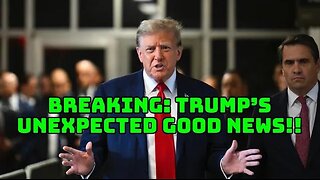The Hidden Strength of the French Economy
The Hidden Strength of the French Economy
Despite the mayhem that spread across France as a result of hiking the retirement age, and the police shooting of a 17-year-old, the country’s economy is surprisingly strong.
Despite French resistance to change, a culture of civil disobedience, and excessive taxes, it is remarkable how strong the French economy is. France is the second largest economy in Europe. The IMF forecasts the economy of France will grow 0.7% this year while Germany and Britian are expected to shrink.
Since 2018, cumulative GDP growth in France has been twice that of Germany. It also is ahead of Britian, Italy, and Spain.
France has a high speed rail network from the 1980s that is larger than most large European nations.
France has a strong nuclear energy industry, composed of 56 reactors, that results in low carbon electricity. Nuclear provides two-thirds of France’s electricity. Six additional reactors are planned. France’s strong nuclear power strategy helps it be less depended on Russian natural gas. This keeps inflation down. While inflation is still high in France, it is less than most of the European Union.
France has more companies in the global top 100 by market capitalization than any other European country. French luxury brands were more profitable in 2022 than American technology firms. All three of the world’s top luxury firms are French: LVMH, Hermes, and Dior.
The most valuable bank in the Euro zone is French: BNP Paribas.
France has grown its share of the global arms export trade by four points to 11% from 2017 and 2022.
France registered more patents last year than most big European countries. French patents were twice that of Britian.
Some of this success is the result of intervention by the French government. I find French government spending to be worrying. French government debt as a proportion of GDP is among the highest in Europe. Government debt was 112% of GDP at the end of last year. I do agree with President Macron’s effort to liberalize the economy by making it easier to hire and fire workers, as well as reducing taxes. If France wants to continue to attract foreign investment, it needs to be a business friendly country. There was almost twice as much foreign investment in France in 2022 than in 2021, and triple that of 2019.
There is no doubt that France has benefited greatly from Britian’s decision to exit the European union. In 2021, France had the highest number of new financial sector projects by foreign investors in a decade. France had more investments into finance from the United States than Britian.
In conclusion, despite civil disobedience, France has found a way to keep its strong economy vibrant and growing. This is the result of prudent decision such as keeping the nuclear energy industry alive and adding more capacity. It also is important that France continues to make itself pro business so it can attract foreign investment. Some would say we are in the midst of a manufacturing super cycle. Companies are looking to invest in factories to build electric vehicles, solar panels, batteries, and an array of other green energy products. The more France can make itself attractive to business, the more wealth it will create and the better people’s lives will be.
Works Cited:
https://www.economist.com/europe/2023/07/27/beneath-frances-revolts-hidden-success
https://www.cnn.com/2023/04/30/economy/france-economy-pension-reform-protests/index.html
Tags:
france, economy, french economy, the economy of france, the economy of france explained, france economy explained, the economics of france, france economy collapse, the economics of france explained, the economy of paris, france 24, how the france economy sets global trends, air france, france24, france economy, french economy explained, french economy under macron, france economics explained, the french economy, economy class, premium economy, france riots
-
 3:46
3:46
The Last Capitalist in Chicago
7 months ago $0.06 earnedBeneficiary forms can override your will
239 -
 1:03:58
1:03:58
Edge of Wonder
15 hours agoAce Ventura: Mandela Detective, King Charles Portrait & Weird News
71.5K68 -
 1:40:05
1:40:05
The Quartering
19 hours agoWhy Modern Women Suck w/Hoe_Math
103K65 -
 1:43:26
1:43:26
Robert Gouveia
15 hours agoGarland SHAKING over CONTEMPT; Congressional MELTDOWN; Fani RAGES at Senate; Tish INVESTIGATED
96.2K108 -
 1:48:05
1:48:05
2 MIKES LIVE
16 hours ago#67 2ML Open Mike Friday, we have a LOT to talk about!
56.5K8 -
 2:27:40
2:27:40
WeAreChange
16 hours agoIt’s NOT Just The Frogs — They’re Turning All The Animals GAY??
91.4K37 -
 1:02:40
1:02:40
In The Litter Box w/ Jewels & Catturd
1 day agoPolice State | In the Litter Box w/ Jewels & Catturd - Ep. 570 - 5/17/2024
99.2K64 -
 1:57:17
1:57:17
Twins Pod
17 hours agoTwins Pod - Episode 13 - Tim Kennedy: Seals Vs Green Berets, Tigers Vs Bears, & Israel Vs Palestine
84.8K40 -
 2:21:43
2:21:43
Tucker Carlson
1 day agoDave Smith: Russia, Israel, Trump & the Swamp, Obama, and the Media Attacks on Joe Rogan
180K498 -
 3:23
3:23
Stephen Gardner
16 hours agoNew Trump Testimony DESTROYS Michael Cohen HUSH MONEY case!
48.9K28